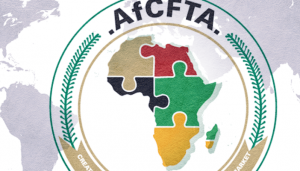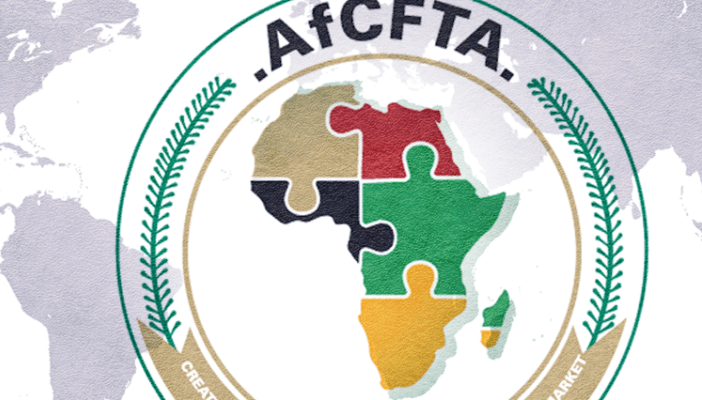OP-ED | AfCFTA: Africa set to takeoff or to crash this decade, By Joachim Buwembo
Will the single market be realized fast enough to withstand the global storms where powerful societies are devising ways, covert and overt, to devour others?

Imagine a big plane with hundreds of passengers racing on the tarmac readying to take off. But towards the end of the runway, the pilot sees a big obstacle like a stationary truck. Stopping the speeding plane which is fully loaded with people and cargo and whose tanks are full of fuel is catastrophic and out of question. The pilot’s only choice is to gun for take-off and lift off with microseconds to spare, or else hit the obstacle, killing everyone on board and pulverizing the equipment. That is the economic choice Africa has to make this decade.
How does the pilot garner enough energy to lift off? In reality away from analogies, how do the leaders of Africa attain take off for the continent in the shortest possible time? For if they don’t, outsiders, with their own agenda and their own interests at heart, will be the ones to determine the course of the continent. In others words, what Africa is facing at the end of this decade is takeoff or takeover. A takeover of the continent by outsiders would basically mean the crash of the Africa Continental Free Trade Area -AfCFTA.
Interestingly, Africa’s situation today is adversely projected as hopeless by both external and African media. The former do it deliberately, the latter inadvertently, as the self-deprecating African journalists prefer pursuing negative news “which sells” but demoralizes instead of positive news that inspires. Both African and foreign media thus prepare the minds for the takeover of the continent’s economies, a process some call the second colonization. The media thus consolidates the view of a weak Africa that needs to beg to survive, a view believed by both outsiders and Africans themselves.
Yet, Africa is big in all aspects and does not need to beg for anything. For instance, at 30.3million sq kms, Africa is the second largest and would actually be the largest continent if Russia (17million sq kms) were to be fully counted in Europe (10million sq kms). The distorted world map you have seen all your life – that makes Africa look smaller than it actually is – is the product of the same logic that seeks to belittle the continent and its people. Similarly, Africa’s population of 1.42 billion today is twice the combined population of Europe and North America.
Ironically, Africa’s population size, which would be described as an asset for any other place, is problematic for those who choose to perpetuate the image of a hopeless continent. The failure to make the AfCFTA work would validate their negative views.
The 2020’s decade is Africa’s runway for takeoff or crash also because of the fast changing reconfiguration of international affairs which stems from successive waves of tragic events that have forced us to rethink the continent’s security in various areas such as health, food, and conflict resolution. The decade had actually started on a high, with everyone saying “twennie-twennie”. The mood, however, didn’t last for long. By the end of January 2020, the coronavirus had reared its head and the whole world was running for cover.
The twennie-twennie mood died out as it had risen as lockdowns engulfed the world. It took two years for calm to return and clarity to emerge. Then came the Russia-Ukraine conflict and we saw African Union leaders begging Russia for food! As I write this article, our leaders have yet to put out the fires of an even larger conflict in Northern Ethiopia.
To fathom the continent’s predicament and yet huge potential, we need to step back five years when Rwanda’s President Paul Kagame was preparing to take the continental chair of the African Union, after he steered the preparatory groundwork for reforming the AU. By that time, the AU was fast sliding back into the same complacency that lead to the slow death of its precursor, the Organisation of African Unity.
President Kagame’s arrival at the helm of the AU signaled the start of reforming the continental body. At the March 21st 2018 signing of the Agreement creating the AfCFTA in Kigali, President Kagame aptly stated that the reforms had culminated in the AU’s “most consequential” undertaking.
Basically, AfCFTA creates the world’s largest single market. It is the flagship of the Africa 2063 Agenda. Without AfCFTA being operationalized quickly, the 2063 agenda will remain just that – an agenda. This begs the question, has the momentum injected by President Kagame in the continental body been maintained? In other words, will the single market be realized fast enough to withstand the global storms where powerful societies are devising ways, covert and overt, to devour others?
A lot has been achieved, in terms of all African states signing the AfCFTA Agreement. But some key details that would make AfCFTA effective are being neglected. For example, only a third of the states are ready to accept and implement the 0.2 per cent levy on the trade transacted in the market, which would enable the AU to be self-financing. For now, two thirds of the AU’s operations are funded by outsiders.
This is taking matters too casually. Would we rather be managed by outsiders who pay our bills with their own interests in mind or should we be fully in charge of our affairs in these uncertain times? The world is changing so fast and by 2050, a quarter of the world’s population will be living on this one island (continent) called Africa, which also has most of the strategic mineral resources the world needs in the new era.
Does Africa smell the coffee?
Yes, some Africans do. On September 18th, the Global Africa Business Initiative launch meeting heard from a few such Africans. Rwanda’s President Paul Kagame delivered what qualifies for a modern day ‘Sermon on the Cloud’ and those who had ears heard. In summary, President Kagame called for unlocking the continent’s development by “unleashing the potential of young people” through innovation, entrepreneurship, creativity, and technology.
Yes, technology is here; the internet, artificial intelligence, 3-D printing, drones, etc…But African states cannot afford to remain fragmented and broke if they are to take advantage of them. Should our leaders fail to fast-track Africa’s integration process of which the implementation of the AfCFTA is an important part, the world’s largest single market will also remain the world’s poorest.
Joachim Buwembo is a journalist, social and political affairs commentator based in Kampala. This article was originally published on The Pan African Review. The views expressed in it are the author’s and do not necessarily reflect African Newspage’s editorial policy.
















